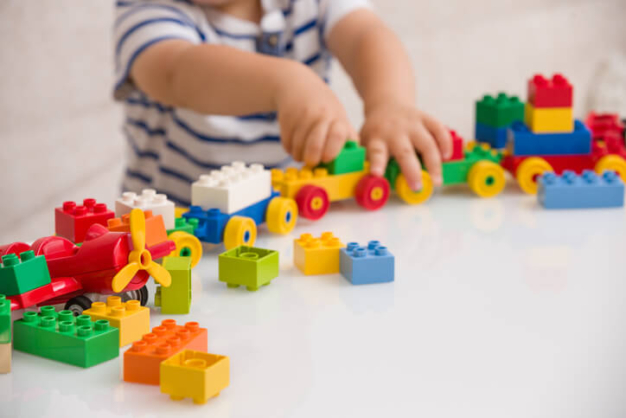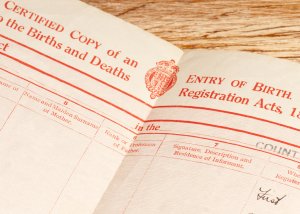Public Law Working Group Interim Report on Adoption Law

Contact
Table of Contents
Time for change?
A recent interim report has been published by the Public Law Working Group Adoption Sub-Group (‘the Group’) this Autumn. This followed a request from the President of the Family Division, Sir Andrew McFarlane that the group consider the current legal processes for adoption in England and Wales and what reform is necessary to ensure this Law remains efficient and fit for purpose.
The report is split into five core areas, with some of the key take homes and recommendations explored below:
-
Chapter 1: Adoption and Contact
There has been a wealth of research in recent years on the potential advantages to adopted children of maintaining a level of face-to-face contact with their birth family, including birth parents, siblings or wider family such as grandparents. However, it is unusual for adoption care plans to make recommendations for contact, other than letterbox contact.
In an age where written letters are rarely used in a personal context, the Group raised that there is a need for modernisation.
The final recommendation is not that contact orders should routinely be made, particularly if there is opposition to this from the adoptive parents, however, the Group has suggested there needs to be a change in social work practice and training to give more focus to careful thought on contact.
When considering this chapter, the Group had input from lawyers in Northern Ireland, where there is an expectation for direct contact with birth families post-adoption, where, if the local authority has a care plan with no provision for direct contact, they must have a strong evidence base as to why this is and the onus is on them to explain why this is the position. This has been the framework in Northern Ireland for some time and so there is a larger post-adoption support team engaged in working with families.
Pending any change in law and practice, there is a statutory framework for post-adoption contact under the Adoption and Children Act 2002, whereby adopted children, adoptive parents and birth relatives can apply to the court seeking contact, albeit that birth relatives must first apply for leave from the Court to make such an application.
-
Chapter 2: Access to Adoption Records
The Group were clear in their recommendations that the system for adopted people to access their adoption records is confusing and slow. Applications can currently be made to a wide range of agencies, including the Family Court, which adds to confusion.
The Group has recommended that a national protocol be put into place providing for a standard procedure for applications, with a template application form and statement to assist people in being able to access their records with independence.
-
Chapter 3: Processes and Procedures in Court
This chapter focusses on the legal procedure for:
- Applications by local authorities for placement orders to place children for adoption;
- Applications by birth parents who seek to oppose the making of an adoption order for their child/ren; and
- Applications by local authorities as to whether a child’s birth father or extended family members must be informed of adoption proceedings where a mother is seeking for her child to be adopted and where there may be a risk of harm to the mother, should wider family be notified.
There is some Legal Aid funding available to birth parents in the above proceedings, which our team can assess eligibility for.
The interim report makes a number of recommendations as to how the above types of Court application can be better managed: with changes to be made to the Family Procedure Rules; updates to the Adoption Statutory Guidance (which has not been updated in a decade since 2013) and further the provision of information to birth parents at an early stage, with leaflets, template statements and blank application forms.
-
Chapter 4: International Adoptions
The Law in this area is described by the Group as “extremely complex” and concern was raised that many parties in these cases are not legally represented; whether that be the applicant adopters, respondent birth parents or the respondent local authority. The Group raised “a concern that a lack of legal oversight could lead to mistakes being made, or important checks and balances being overlooked”.
Our team regularly advise prospective adopters, birth families and local authorities in respect of international adoption cases and agree that initial advice is imperative to avoid delays or mistakes being made in proceedings.
The Head of our team will be responding to the report as a specialist in this area.
-
Chapter 5: Consensual Adoptions
These are adoptions where a birth parent, or birth parents, have approached their local authority, usually during pregnancy notifying them that they would wish for their child/ren to be adopted after birth.
The Group recommends a national strategy be put in place for such cases with added training for professionals. They also recommend better access to legal advice for the parent/s before the birth and for local authorities to bring these cases to court without delay so that there is court oversight on any issues, including involvement of the wider family. As these cases are rarer, the Group are seeking responses to their consultation from those who have experience of consensual adoption, either from a personal or professional perspective.
The consultation period is now open until the end of November 2023, so that all those concerned with the family justice system and those interested in the welfare of children and young people can take part in giving their comments on the recommendations. These are to be sent to pfd.office@judicary.uk by 30 November 2023.
It is expected the full report will be published, together with an implementation plan, in early 2024.
At Osbornes, we have a team of adoption law specialists, who can assist birth parents and adopters in respect of domestic and international adoptions. We can further assist with advising on and obtaining other family law orders for children placed with relatives.
Share this article
"Osbornes has an impressive social housing team and the quality of their work that I have seen is very high. Will Ford is a very well-regarded figure in the housing law world and leads a team of high quality and committed lawyers."
"Diana Bastow was absolutely dogged in getting the best result for me. She has a client-first approach, but wasn’t frightened to give direction when she felt I was going off piste"
"Firmly resolute yet pragmatic, Stuart Kightley at Osbornes is a first choice for referrals in the profession."
Yael is a pleasure to work with and I have no qualms in recommending her. She is a small but mighty force to be reckoned with and you definitely want her on your side.
"They are a boutique firm with highly experienced partners who are well-respected in the industry."
More Adoption InsightsVIEW ALL
- 31.8.2022
What if my partner predeceases me before we...
A review of a recent case concerning consent during fertility treatment. When going through fertility treatment as a couple, it...
Read more - 31.8.2022
Declaration of parentage after mistake at register office
Recently in the news has been the outcome of the case of Osborne & Anor v Cambridgeshire County Council [2022] EWHC 1982 (...
Read more - 2.8.2022
New strategy to make fertility treatment more accessible
In July 2022, the Department of Health for England released its strategy aimed at improving Women’s Health. While women represent 51%...
Read more - 5.7.2022
Proposed Changes to Gamete Donor Anonymity Laws in...
The Human Fertilisation and Embryology Authority (HFEA) has proposed changes to the law surrounding gamete donor anonymity in the UK....
Read more - 20.10.2021
Birth parent fails to overturn adoption order
Most adoption applications go through smoothly and it is only in the minority of cases that birth parents seek to...
Read more - 25.3.2019
Russian Adoptions
Adopting a baby from Russia can give a chance of a family to a child who would otherwise spend their...
Read more





